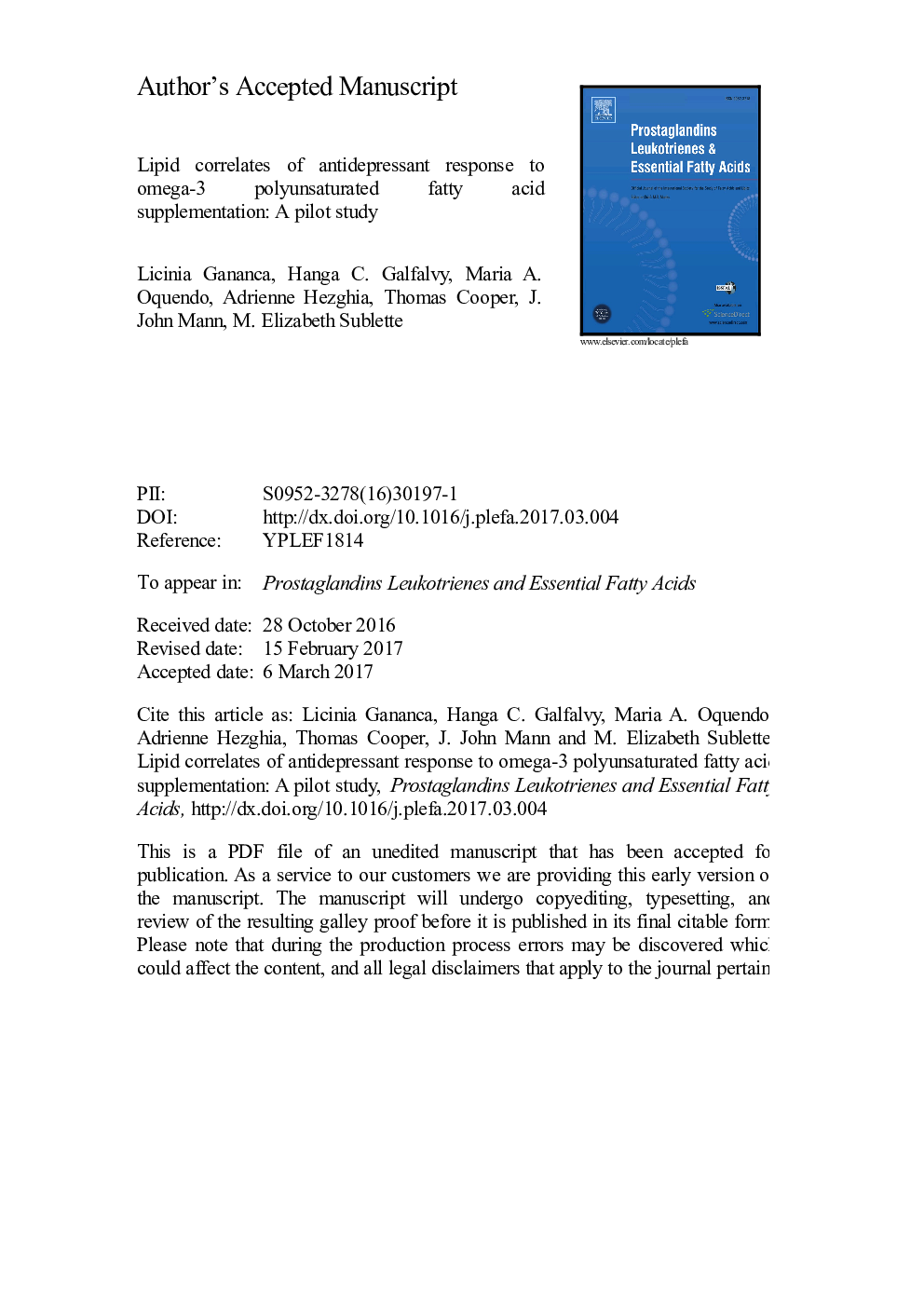| کد مقاله | کد نشریه | سال انتشار | مقاله انگلیسی | نسخه تمام متن |
|---|---|---|---|---|
| 5584955 | 1568000 | 2017 | 34 صفحه PDF | دانلود رایگان |
عنوان انگلیسی مقاله ISI
Lipid correlates of antidepressant response to omega-3 polyunsaturated fatty acid supplementation: A pilot study
ترجمه فارسی عنوان
ارتباط لیپید پاسخ های ضد افسردگی به امگا 3 مکمل های اسید چرب اشباع نشده: یک مطالعه آزمایشی
دانلود مقاله + سفارش ترجمه
دانلود مقاله ISI انگلیسی
رایگان برای ایرانیان
موضوعات مرتبط
علوم زیستی و بیوفناوری
بیوشیمی، ژنتیک و زیست شناسی مولکولی
بیوشیمی بالینی
چکیده انگلیسی
Low omega-3 polyunsaturated fatty acid (PUFA) levels are seen in major depression. We examined effects of six weeks of fish oil supplementation on clinical characteristics in 16 patients with symptomatic major depressive disorder, and tested plasma phospholipid levels of docosahexaenoic acid (DHA) and eicosapentaenoic acid (EPA) as correlates of clinical response. Depression symptoms improved after supplementation (p=0.007). The reduction in depression severity was not predicted by baseline PUFA levels but did exhibit a relationship with endpoint PUFAs, correlating negatively with DHA as a percentage of plasma phospholipids (DHA%; R2=0.60, p=0.004), adjusting for endpoint EPA%; and correlating positively with endpoint EPA% (R2=0.58, p=0.007), adjusting for endpoint DHA%. Thus, the higher the proportion of DHA to EPA, the greater the reduction in depression severity (r=â0.43, p=0.097). Five patients showed a decrease of >50% on the 17-item Hamilton Depression Rating Scale and a final score <7 and were thus not only responders but met standard criteria for remission, and were distinguished from non-responders by higher levels of DHA% (p=0.03). This pilot study suggests that post-supplementation DHA% levels may be a necessary target for antidepressant response to fish oil, and that this may depend to some extent on the efficacy of EPA conversion to DHA.
ناشر
Database: Elsevier - ScienceDirect (ساینس دایرکت)
Journal: Prostaglandins, Leukotrienes and Essential Fatty Acids - Volume 119, April 2017, Pages 38-44
Journal: Prostaglandins, Leukotrienes and Essential Fatty Acids - Volume 119, April 2017, Pages 38-44
نویسندگان
Licinia Ganança, Hanga C. Galfalvy, Maria A. Oquendo, Adrienne Hezghia, Thomas B. Cooper, J. John Mann, M. Elizabeth Sublette,
